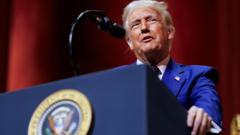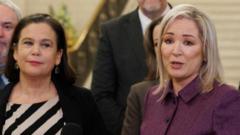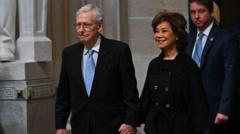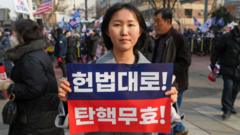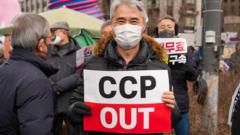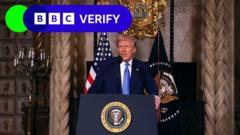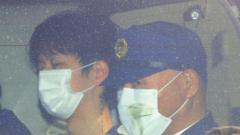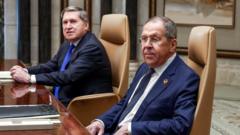**As the first Asian leader to visit the White House in Trump's second term, Ishiba's agenda includes economic, security, and technology discussions.**
**Japan Aims to Strengthen Ties with Trump Through Personal Diplomacy**
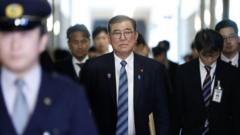
**Japan Aims to Strengthen Ties with Trump Through Personal Diplomacy**
**Shigeru Ishiba plans a crucial meeting with Donald Trump today, focusing on enhancing bilateral relations.**
The visit of Japan’s Prime Minister Shigeru Ishiba to the White House today marks a significant step in enhancing the relationship between Japan and the United States, particularly under the leadership of Donald Trump. Ishiba aims to establish a personal rapport with Trump, reminiscent of the former collaboration with Shinzo Abe, Japan's previous Prime Minister, who enjoyed a close connection with Trump during his administration.
Security concerns, particularly regarding North Korea, and economic issues will dominate their discussions, alongside advanced technological advancements such as artificial intelligence. Ishiba emphasized the importance of building trust during their upcoming face-to-face meeting, a strategic move given that this is the first visit by an Asian leader since Trump began his second term in January.
Senior officials from both governments expect the discussions to revolve around promoting "peace and prosperity" in the Pacific region. The meeting comes in light of Japan's substantial economic collaboration with the U.S., being a key foreign investor for several years and the largest employer in many states. Notably, Japanese firms have created considerable jobs, especially in the automotive sector in places like Kentucky.
From Japan's perspective, Ishiba is likely to stress the necessity of Japanese investments and security cooperation, with a focus on the recent decision to increase Japan's defense budget to 2%. While this figure remains modest compared to NATO allies' expenditures, it highlights Japan's commitment to enhancing its defense capabilities amid concerns regarding North Korea's military collaboration with Russia.
Ultimately, the meeting is expected to reaffirm the long-standing alliance while addressing multifaceted regional security issues pertaining to North Korea and the U.S.'s commitment to allied defense. Ishiba's proactive approach, including consultations with Abe's widow and his predecessor, illustrates Japan's dedication to fostering a productive relationship with the current U.S. administration.
Security concerns, particularly regarding North Korea, and economic issues will dominate their discussions, alongside advanced technological advancements such as artificial intelligence. Ishiba emphasized the importance of building trust during their upcoming face-to-face meeting, a strategic move given that this is the first visit by an Asian leader since Trump began his second term in January.
Senior officials from both governments expect the discussions to revolve around promoting "peace and prosperity" in the Pacific region. The meeting comes in light of Japan's substantial economic collaboration with the U.S., being a key foreign investor for several years and the largest employer in many states. Notably, Japanese firms have created considerable jobs, especially in the automotive sector in places like Kentucky.
From Japan's perspective, Ishiba is likely to stress the necessity of Japanese investments and security cooperation, with a focus on the recent decision to increase Japan's defense budget to 2%. While this figure remains modest compared to NATO allies' expenditures, it highlights Japan's commitment to enhancing its defense capabilities amid concerns regarding North Korea's military collaboration with Russia.
Ultimately, the meeting is expected to reaffirm the long-standing alliance while addressing multifaceted regional security issues pertaining to North Korea and the U.S.'s commitment to allied defense. Ishiba's proactive approach, including consultations with Abe's widow and his predecessor, illustrates Japan's dedication to fostering a productive relationship with the current U.S. administration.

